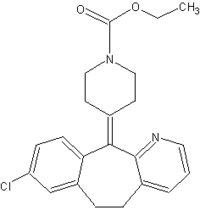Naturopath
Taking nettle supplements can provide an antihistamine effect and provide symptom relief. For permanent allergy elimination, I use a therapy developed by acupuncturist and chiropractor Devi Nambudripad called NAET. It begins with testing the patient's muscle response to various substances. The theory is that allergies interrupt the body's energy flow, which causes weakness in the muscles in the presence of the allergen. After I test the patients, I stimulate pressure points along the spine while the patient is holding the allergen. The acupressure treatment retrains the body to accept the allergen. It's important to treat the whole body while treating the allergies. (To find an allergy-elimination therapist, visit naet.com.)
--Melody Wong, N.D., Palo Alto, Calif., naturopath
Medical advisor
A cold passes in seven to 10 days, so symptoms lingering beyond that probably indicate an allergy. A symptom that's unique to allergies is an itch at both the back of your throat and in the eyes, along with a runny nose and congestion. Ask a doctor about treating allergies, since there's an overwhelming number of medications. Over-the-counter, non-sedating antihistamines like Alavert or Claritin are a first line of defense, but many don't relieve congestion, so you might try Claritin-D or Alavert Allergy & Sinus. If you still can't find relief, see your doctor about tests to identify your sensitivity, and to get a prescription for a more appropriate drug.
The best way to prevent allergic reactions is to avoid contact with the allergen. In summer, stay inside in the early morning, when pollen levels are high. Change your clothes as soon as you come inside, then take a quick shower to remove allergens.
--Derek Johnson, M.D, medical advisor to the Asthma and Allergy Foundation of America
Allergist
You can control allergy-related sneezing and runny nose by using a nasal steroid spray on a daily basis. I recommend getting a prescription, since over-the-counter nasal sprays are mostly decongestants that aren't as powerful and can cause rebound congestion. With grass allergies, which are common in June, you should avoid going outside right after your lawn's been mowed. If you have to do the mowing, take an antihistamine an hour beforehand and wear a mask and goggles.
Immunotherapy provides long-term relief by desensitizing patients to allergens. We do skin tests to confirm sensitivity to pollens and inhalants, then make an extract containing those allergens. The extracts, which are administered in a shot, contain increasing concentrations of the allergens. After six weekly shots, most patients will get allergy relief.
--Georgiana Marie Sanders, M.D.,assistant professor of internal medicine and pediatrics at the University of Michigan
COPYRIGHT 2004 Weider Publications
COPYRIGHT 2004 Gale Group



